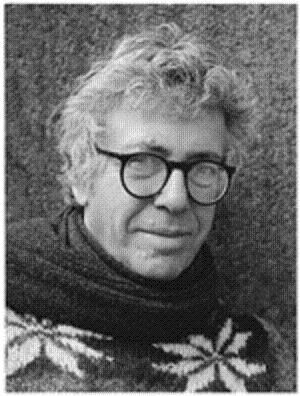El
modo de la persona se torna el modo del mundo,
para esa
persona y, a veces, para el
mundo mismo.
se
queda fija en su inevitable arbusto...,
lo
que supone que cambiar de modo es cambiar el mundo.
Ahora
tú, por ejemplo, eres de este modo: tú dices
que
en ese central siempre oscuro, allá donde esté,
hay
una gota que es elemento de la vida,
solo,
singular surtidor y mínimo patriarca,
única
cosa común a toda vida, lo humano
e
inhumano mismo, lo parecido de cosas dispares.
Y
tú, tú dices que las cosas capitales de la mente
sean
tan naturales como objetos naturales,
para
que un rey labrado hallado en una jungla, gigantesco
y
erosionado, sea parte de un paisaje humano,
que
una figura reclinada entre columnas demolidas,
rígida
en un eterno letargo, sea
no
el inicio sino el fin del artificio,
una
naturaleza de mármol en un mundo de mármol.
Y
entonces, por fin, eres tú quien dice
que
el hombre sólo en sus definiciones de sí mismo,
sólo
acompasado en humanidad, es él
mismo.
El autor de los cánones del hombre es el hombre,
no
algún patrón e imaginero externo.
¿En cuál
de estos tres mundos nos hallamos los cuatro
y
sentido y conocido las diferencias que hemos visto
y
sentido y conocido en los colores en que vivimos,
en las excelencias del aire que respiramos
que
el sentido de ser cambia conforme hablamos
que
hablar altera el ciclo de las escenas de los reyes?
Wallace Stevens (E.E.U.U.; Reading, Pennssylvania, 1879; Hartford,
Connecticut, 1955)
(Traducción: Andrés Sánchez Robayna, Daniel Aguirre y Andreu Jaime)
CONVERSATION WITH THREE WOMEN OF NEW ENGLAND
The
node of the person becomes the mode of
the world
or
that person and, sometimes, for the world itself
The
contents of the mind become solid show
Or
almost solid seem show-the way a fly bird
Fixes
itself in its inevitable hush
It
follows that to change modes is to change the world.
Now,
you, for instance, are of this mode: You say
That
in that ever-dark central, wherever it is,
In
the central of earth or sky or air or thought,
There
is a drop that is life’s element,
Sole,
single source and minimum patriarch,
The
one thing common to all life, the human
And
inhuman same, the likeness of things unlike.
And
you, you say that the capital things of the mind
Should be
as natural as natural objects,
And
weathered, should be part of a human landscape,
That
a figure reclining among columns toppled down,
Stiff
in eternal lethargy, should be,
Not
the beginning but the end of artifice,
A
nature of marble in a marble world.
And
then, finally, it is you that say
That
only in man's definitions of himself,
Only
encompassed in humanity, is he
Himself.
The author of man’s canons is man,
Not
some outer patron and imaginer.
In
which one of these three worlds are the four of us
The
most at home? Or is it enough to have seen
And
felt and known the differences we have seen
And
felt and known in the colors in which we live
In
the excellences of the air we breathe,
The
bouquet of being-enough to realize
That
the sense of being changes as we talk,
ºThat
talk shifts the cycle of the scenes of kings?









